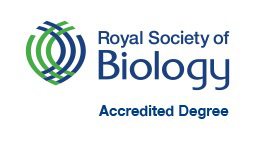Biology and Climate Change Code FC71 Attend an Open Day Attend an Open Day Clearing places available – 0800 121 40 80
Apply NowKey Facts
FC71-
UCAS Tariff
120 to include B in A-level Biology or equivalent - 104
-
Course duration
3 years
Available for
Further details on entry requirements
Apply NowThe BSc Biology and Climate Change degree at Aberystwyth University explores creative ways of responding to the challenges and opportunities of the current climate crisis, and will equip you with relevant subject-specific knowledge alongside the multidisciplinary, interpersonal skills and attributes needed to create a more just and sustainable world. If your intention involves having a positive impact on the world, this course will set you securely on that rewarding journey.
On this degree, you'll learn about the science underpinning climate, and how humans have changed these processes in recent times. You'll explore the impacts of climate change on biodiversity at the level of species, habitats and ecosystems, and the scope for organisms and populations to evolve in the light of this threat. By working across disciplines, you'll learn the need for both scientific research and governance in tackling these important issues.
Course Overview
Careers
Teaching & Learning
Typical Entry Requirements
UCAS Tariff 120 to include B in A-level Biology or equivalent - 104
A Levels BBB-BCC with B in Biology/Human Biology
GCSE requirements (minimum grade C/4):
English or Welsh, Science and Mathematics
BTEC National Diploma:
DDD-DDM in a specified subject
International Baccalaureate:
30-28 with 5 points in Biology at Higher Level
European Baccalaureate:
75%-65% overall with 7 in Biology
English Language Requirements:
See our Undergraduate English Language Requirements for this course. Pre-sessional English Programmes are also available for students who do not meet our English Language Requirements.
Country Specific Entry Requirements:
International students whose qualification is not listed on this page, can check our Country Specific Entry Requirements for further information.
The University welcomes undergraduate applications from students studying the Access to Higher Education Diploma or T-level qualifications, provided that relevant subject content and learning outcomes are met. We are not able to accept Access to Higher Education Diplomas or T-levels as a general qualification for every undergraduate degree course.
Our inclusive admissions policy values breadth as well as depth of study. Applicants are selected on their own individual merits and offers can vary. If you would like to check the eligibility of your qualifications before submitting an application, please contact the Undergraduate Admissions Office for advice and guidance.

